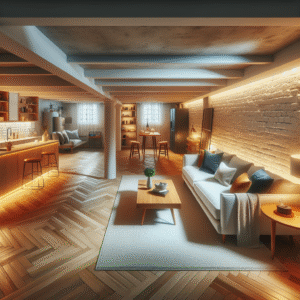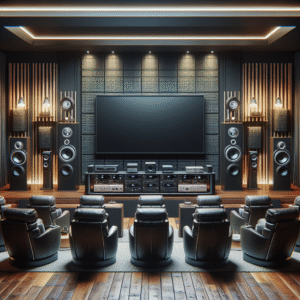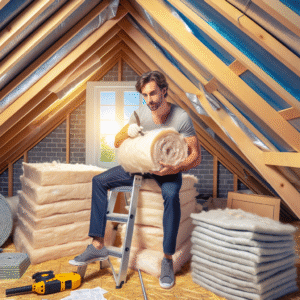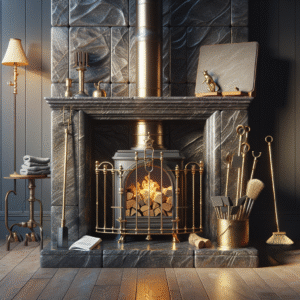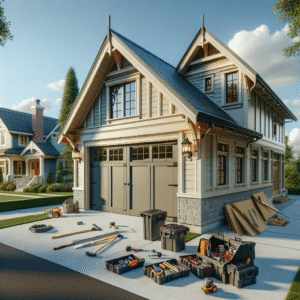Your home’s plumbing system is essential to your daily comfort and convenience, responsible for delivering clean water to your faucets, showers, and appliances, and safely removing wastewater. However, like any other system in your home, plumbing requires regular maintenance to ensure it operates efficiently and to prevent potential problems. Regular plumbing inspections are a crucial part of home maintenance that can help you avoid costly repairs, water damage, and health hazards. In this blog, we’ll explore the importance of regular plumbing inspections, what they involve, and what you can expect during the process.
1. Why Regular Plumbing Inspections Are Important
Regular plumbing inspections are vital for maintaining the integrity of your plumbing system and preventing minor issues from becoming major problems. Here’s why these inspections are so important:
1.1 Early Detection of Problems
- Preventative Maintenance: Plumbing inspections allow you to identify potential issues before they become serious problems. Early detection can prevent minor leaks from turning into major water damage or small clogs from causing significant blockages.
- Cost Savings: Addressing plumbing issues early can save you money in the long run by avoiding costly repairs, water damage, and the need for emergency services. A small investment in regular inspections can prevent expensive problems down the road.
1.2 Improved Water Quality
- Detecting Contaminants: Over time, pipes can corrode, rust, or accumulate mineral deposits, which can affect the quality of your water. Regular inspections can identify these issues, ensuring that your water remains clean and safe for drinking, cooking, and bathing.
- Preventing Backflow: Inspections can also check for backflow issues, which occur when contaminated water flows back into your clean water supply. Backflow can pose serious health risks, so it’s essential to address this problem promptly.
1.3 Ensuring System Efficiency
- Optimizing Performance: An inspection can reveal inefficiencies in your plumbing system, such as slow drains, leaks, or low water pressure. By addressing these issues, you can improve the performance of your plumbing and reduce water waste.
- Extending Lifespan: Regular maintenance and inspections can extend the lifespan of your plumbing system by preventing wear and tear, corrosion, and other issues that can lead to premature failure.
1.4 Preventing Water Damage
- Leak Detection: Undetected leaks can cause significant water damage to your home, leading to mold growth, structural damage, and costly repairs. Regular inspections help identify leaks early, preventing extensive damage.
- Pipe Integrity: Inspections can assess the condition of your pipes, checking for signs of wear, corrosion, or weakness. This is particularly important in older homes where pipes may be nearing the end of their lifespan.
2. What to Expect During a Plumbing Inspection
A plumbing inspection is a thorough examination of your home’s plumbing system, conducted by a licensed plumber. The process typically involves several key steps:
2.1 Visual Inspection
- Checking Fixtures and Faucets: The plumber will start with a visual inspection of all plumbing fixtures, including sinks, faucets, toilets, showers, and bathtubs. They will check for signs of leaks, corrosion, and proper operation.
- Inspecting Exposed Pipes: The plumber will examine any exposed pipes in your basement, crawl space, or utility room for signs of wear, leaks, or corrosion. They will also check for proper insulation to prevent freezing in colder climates.
- Assessing Water Heater: The water heater is a critical component of your plumbing system. The plumber will check the water heater for signs of leaks, rust, or improper operation. They will also inspect the temperature settings and the pressure relief valve to ensure safe operation.
- Evaluating Drainage: The plumber will check the condition of drains in sinks, showers, and bathtubs to ensure they are draining properly. Slow drains or standing water can indicate a clog or other issue that needs to be addressed.
2.2 Testing Water Pressure
- Measuring Pressure Levels: Water pressure that is too high or too low can indicate underlying issues in your plumbing system. The plumber will measure the water pressure to ensure it is within the recommended range (typically between 40 and 60 psi).
- Checking Pressure Regulators: If your home has a pressure regulator, the plumber will inspect it to ensure it is functioning correctly. A malfunctioning regulator can lead to inconsistent water pressure and potential damage to your plumbing system.
2.3 Inspecting for Leaks
- Leak Detection Tools: In addition to a visual inspection, the plumber may use specialized tools such as moisture meters, thermal imaging cameras, or acoustic leak detectors to identify hidden leaks behind walls, under floors, or in hard-to-reach areas.
- Common Leak Areas: The plumber will pay close attention to common leak areas, such as under sinks, around toilets, and near water heaters. Even small leaks can cause significant damage over time, so early detection is crucial.
2.4 Sewer and Drain Inspection
- Camera Inspection: For a more comprehensive assessment, the plumber may perform a camera inspection of your sewer lines and drains. This involves inserting a small, waterproof camera into the pipes to visually inspect for blockages, cracks, or other issues.
- Checking for Root Intrusion: Tree roots are a common cause of sewer line blockages. During the camera inspection, the plumber will check for any signs of root intrusion, which can damage your sewer lines and cause backups.
- Assessing Drainage Systems: The plumber will also assess your home’s drainage systems, including the sump pump (if applicable), to ensure they are functioning correctly and efficiently directing water away from your home.
2.5 Evaluating Water Quality
- Water Testing: If you have concerns about your water quality, the plumber can perform tests to check for contaminants such as lead, chlorine, bacteria, and hard water minerals. Water quality testing is especially important if you rely on well water or have an older plumbing system.
- Backflow Prevention: The plumber will inspect backflow prevention devices, if present, to ensure they are working correctly. Backflow devices prevent contaminated water from flowing back into your clean water supply, protecting your health.
3. When to Schedule a Plumbing Inspection
Regular plumbing inspections should be a part of your home maintenance routine. Here are some situations when scheduling an inspection is especially important:
3.1 Buying or Selling a Home
- Pre-Purchase Inspection: If you’re buying a home, a plumbing inspection is an essential part of the pre-purchase inspection process. It can reveal potential issues that may not be immediately visible, allowing you to make an informed decision or negotiate repairs with the seller.
- Pre-Sale Inspection: If you’re selling your home, having a plumbing inspection before listing it can help you address any issues in advance, making your home more attractive to potential buyers and avoiding delays in the sale process.
3.2 After Major Renovations
- Post-Renovation Check: If you’ve recently completed a major renovation, especially one that involved changes to your plumbing system, it’s a good idea to schedule an inspection to ensure everything is functioning correctly and meets code requirements.
3.3 Seasonal Maintenance
- Winter Preparation: Before the winter season, schedule an inspection to check for potential freeze risks, such as exposed pipes or inadequate insulation. The plumber can also ensure your water heater is ready for increased usage during colder months.
- Spring Maintenance: After the winter thaw, an inspection can check for any damage caused by freezing temperatures, such as cracked pipes or damaged outdoor spigots.
3.4 Noticing Signs of Trouble
- Unusual Signs: If you notice any signs of plumbing issues, such as slow drains, water stains on walls or ceilings, low water pressure, or an increase in your water bill, schedule an inspection as soon as possible. Early detection can prevent more serious problems from developing.
4. Choosing the Right Plumber for Your Inspection
Selecting a qualified plumber for your inspection is crucial to ensuring a thorough and accurate assessment. Here are some tips for choosing the right professional:
4.1 Licensing and Certification
- Licensed Plumbers: Ensure that the plumber you hire is licensed and certified to perform inspections in your area. A licensed plumber has the necessary training and knowledge to identify potential issues and provide expert advice.
4.2 Experience and Reputation
- Experience Matters: Choose a plumber with experience in performing inspections, particularly in homes similar to yours. Experienced plumbers are more likely to recognize common issues and provide accurate assessments.
- Check Reviews: Look for online reviews and testimonials from previous customers. Positive feedback and a strong reputation are good indicators of a plumber’s reliability and quality of work.
4.3 Detailed Reports
- Comprehensive Reporting: After the inspection, the plumber should provide a detailed report of their findings, including any issues identified, recommended repairs, and potential risks. A thorough report helps you understand the condition of your plumbing system and prioritize any necessary work.
Conclusion
Regular plumbing inspections are a vital part of home maintenance, helping you detect and address issues before they become major problems. By scheduling inspections regularly and following the advice of a qualified plumber, you can ensure that your plumbing system operates efficiently, delivers clean water, and protects your home from water damage. Whether you’re buying a new home, preparing for a renovation, or simply maintaining your current property, a plumbing inspection is an investment in the long-term health and safety of your home. Don’t wait for a plumbing emergency—take proactive steps to keep your plumbing system in top condition.


